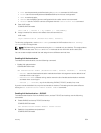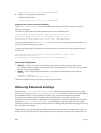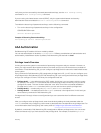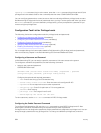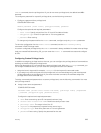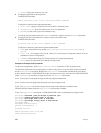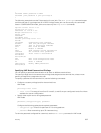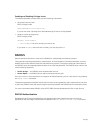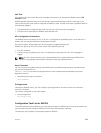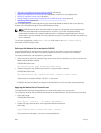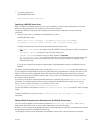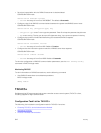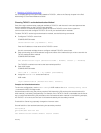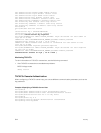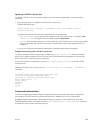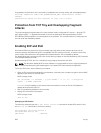
Idle Time
Every session line has its own idle-time. If the idle-time value is not changed, the default value of 30
minutes is used.
RADIUS specifies idle-time allow for a user during a session before timeout. When a user logs in, the
lower of the two idle-time values (configured or default) is used. The idle-time value is updated if both of
the following happens:
• The administrator changes the idle-time of the line on which the user has logged in.
• The idle-time is lower than the RADIUS-returned idle-time.
ACL Configuration Information
The RADIUS server can specify an ACL. If an ACL is configured on the RADIUS server, and if that ACL is
present, the user may be allowed access based on that ACL.
If the ACL is absent, authorization fails, and a message is logged indicating this.
RADIUS can specify an ACL for the user if both of the following are true:
• If an ACL is absent.
• If there is a very long delay for an entry, or a denied entry because of an ACL, and a message is
logged.
NOTE: The ACL name must be a string. Only standard ACLs in authorization (both RADIUS and
TACACS) are supported. Authorization is denied in cases using Extended ACLs.
Auto-Command
You can configure the system through the RADIUS server to automatically execute a command when
you connect to a specific line.
The auto-command command is executed when the user is authenticated and before the prompt
appears to the user.
• Automatically execute a command.
auto-command
Privilege Levels
Through the RADIUS server, you can configure a privilege level for the user to enter into when they
connect to a session.
This value is configured on the client system.
• Set a privilege level.
privilege level
Configuration Task List for RADIUS
To authenticate users using RADIUS, you must specify at least one RADIUS server so that the system can
communicate with and configure RADIUS as one of your authentication methods.
The following list includes the configuration tasks for RADIUS.
Security
809



